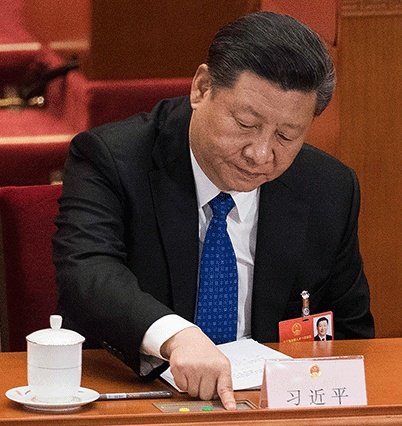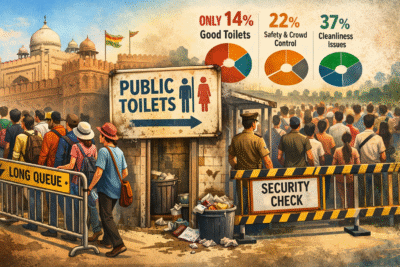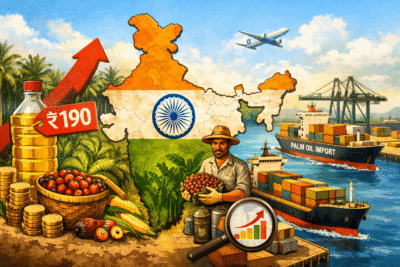
China’s approach to global refugee protection is a study in contrasts. While Beijing’s diplomatic rhetoric paints it as a champion of multilateralism and humanitarian efforts, its actions tell a different story. Despite being the world’s second-largest economy and a permanent member of the UN Security Council, China remains a minor player in supporting refugees—whether through financial contributions, legal frameworks, or resettlement efforts. This analysis is based on a detailed informative piece in Coffee In the Desert newsletter, examining the disconnect between China’s promises and its performance, raising critical questions about its role as a global leader in humanitarian response.
Financial Contributions: A Drop in the Ocean
At the 75th Session of the UNHCR Executive Committee, Ambassador Chen Xu called for increased financial support for UNHCR to address growing humanitarian needs. Yet China itself contributes far less than other major donors, including Japan and Western nations.
A Comparative Look at Financial Support (2015-2023)
| Year | China Contribution (USD) | Japan Contribution (USD) |
|——|————————–|————————–|
| 2015 | 1.5 million | 100 million |
| 2017 | 11.1 million | 120 million |
| 2023 | 6 million | 180 million |
Japan consistently outpaces China by at least 20 times, with private donors alone raising $73.8 million in 2023—more than China’s entire national contribution in any given year.
While Beijing promotes its Global Development and South-South Cooperation Fund as an alternative mechanism for refugee assistance, these projects lack transparency and fail to address immediate humanitarian needs. This raises questions about whether China’s support is performative rather than practical.
Refugee Acceptance: A Negligible Effort
China’s refugee acceptance numbers are strikingly low. With only 1,160 registered refugees, including 340 from conflict zones such as Somalia and Syria, Beijing falls far behind other nations with comparable resources.
Unlike Japan or South Korea, which have structured asylum processes despite their restrictive policies, China lacks a domestic asylum system altogether. Refugees must rely on UNHCR to determine their status, leaving them in legal limbo. Even the 303,000 Indo-Chinese refugees, who have lived in China for decades remain integrated but without formal legal recognition.
This approach underscores China’s reluctance to assume responsibility for displaced populations—a glaring gap for a country with vast economic capacity.
Development Over Humanitarian Relief
China’s refugee policy prioritises addressing root causes of displacement—such as war and economic inequality—over immediate relief efforts. Ambassador Chen Xu pointed to Beijing’s domestic poverty reduction model as an example of how development can support refugee integration.
This philosophy aligns with China’s broader foreign policy agenda under initiatives like the Belt and Road Initiative (BRI). While development can offer long-term solutions, it fails to address the urgent needs of refugees who require life-saving assistance today.
Diplomatic Engagement: Words Without Action
China portrays itself as a mediator in conflicts driving mass displacement, such as those in Gaza and the Middle East. However, its interventions often lack enforcement mechanisms or sustained commitment. Regional powers like Saudi Arabia have taken on greater responsibility for conflict resolution.
Beijing’s close ties with authoritarian regimes accused of human rights abuses further complicate its image. For instance, its support for Bashar al-Assad’s government—one of the largest sources of forced displacement globally—undermines its credibility as an advocate for refugees.
Moving Beyond Symbolism
If China truly seeks to elevate its role in global refugee governance, it must take concrete steps that align with its rhetoric:
- Increase Financial Contributions: Match funding levels with its status as a global power.
- Develop Legal Frameworks: Establish structured asylum systems to protect displaced individuals.
- Accept More Refugees: Especially from regions where China has political and economic stakes.
- Ensure Diplomatic Outcomes: Focus on actionable results rather than broad commitments.
By bridging the gap between words and deeds, China has an opportunity to transform its performative role into meaningful leadership on refugee issues.
Let’s conclude
China’s rhetoric at international forums paints it as a responsible stakeholder in addressing global refugee crises. Yet its minimal financial contributions, lack of legal frameworks for asylum seekers, and limited resettlement efforts reveal a stark disconnect between its promises and actions. As humanitarian needs continue to grow worldwide, Beijing faces a critical choice: remain on the sidelines or step up as a genuine leader in refugee protection.
There is that urgent need for China, if it wants to be seen as a serious and sensible super power, to move beyond symbolic gestures and embrace substantive action—an essential step if it hopes to bolster its credibility on the world stage.



